Dallas, meet Sally — the world’s first fresh-food making robot that has now found a new home in Dallas, its maker says.
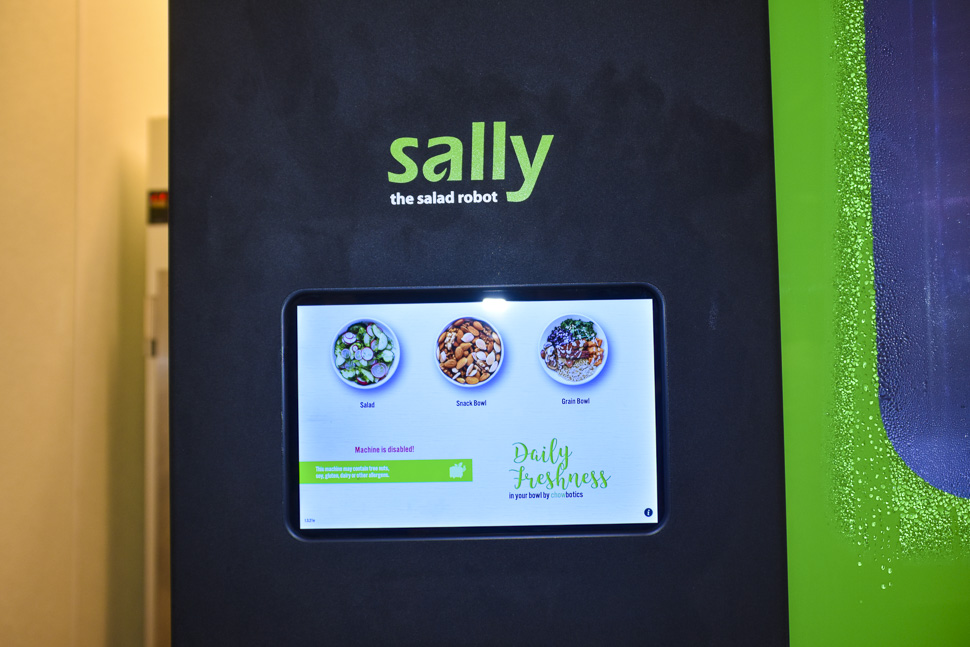
Each order on Sally is completely customizable, where you can choose what ingredients you want. [Photo: Quincy Preston]
The device was invented by Chowbotics, a company that works on creating robots for food-based products in order to bring freshness into places where it otherwise wouldn’t exist. The idea is that a robot is an innovative solution to the food service industry, because it eliminates the need to spend time on repetitive tasks, therefore allowing humans to put more effort into being creative. Founder Deepak Sekar, Ph.D. is a professional inventor with more than 100 patents. Though the company is based in Northern California, beginning Sally’s expansion in Dallas seemed like a natural next step for the company.
“We have an office in Dallas, it is a food industry hub, and many of our customers are located there,” founder and CEO of Chowbotics Dr. Deepak Sekar says, “so it was a natural fit for one of the first markets to launch Sally.”
Locally, Lockheed Martin’s Dallas cafeteria — operated by Eurest, a division of Compass Group — uses Sally. She’s also deployed in Alcon Labs, whose cafeteria is operated by Sodexo. Dr. Deepak Sekar says both companies are using Sally to not only provide fresh food options for employees, but also serve up that freshness when cafeteria services are closed.
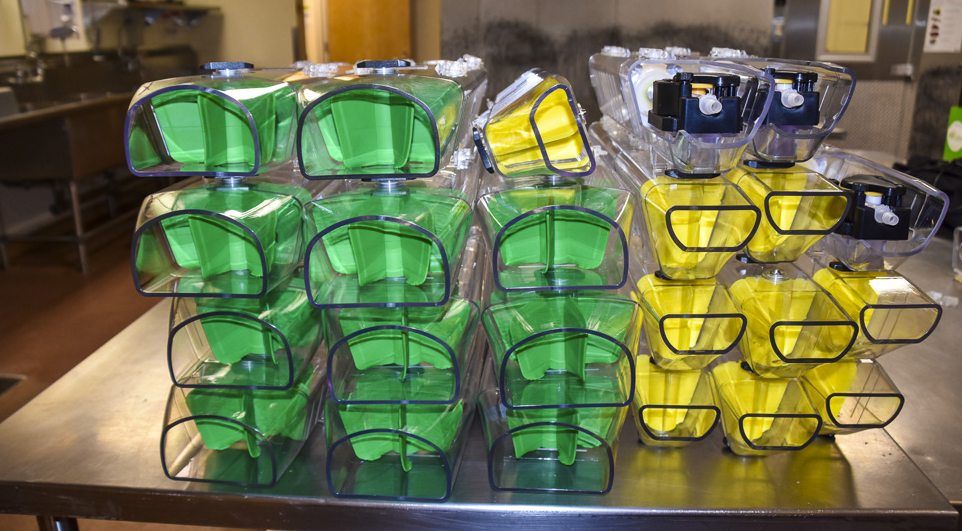
Sally features more than 100 different salad combinations. [Photo: Quincy Preston]
Sally weighs about 350 lbs., and can make up to 100 salads before needing to be refilled. Her primary task is to make customized salads, though she is also capable of crafting snacks, breakfast bowls like yogurt parfaits, grain bowls, and a variety of cuisines: Mexican, Mediterranean, Indian, Chinese, and Thai.
Each Sally has over 100 different salad combinations, including three that are specially programmed: Sally’s Salad, the Power Chow Salad, and the Silicon Valley Salad. The salads take about a minute and a half to make, and as you’re choosing your ingredients, the exact amount of calories each choice has is on display for consumers.
Dr. Deepak Sekar says Chowbotics is currently working on expanding the range of food that robots can make, like adding a warming capability to serve other healthy meal options such as soups. Chowbotics hopes to progress their new twist on vending machines beyond salads, recently raising $11 million for that cause.
Chowbotics thinks that using a robot to produce food is more hygienic, more efficient, and less expensive than using a human — although, the humans behind the scenes of Sally may be looking for a new home. PilotWorks, where Chowbotics and many other companies were utilizing the rentable kitchen space, recently closed all facilities unexpectedly.
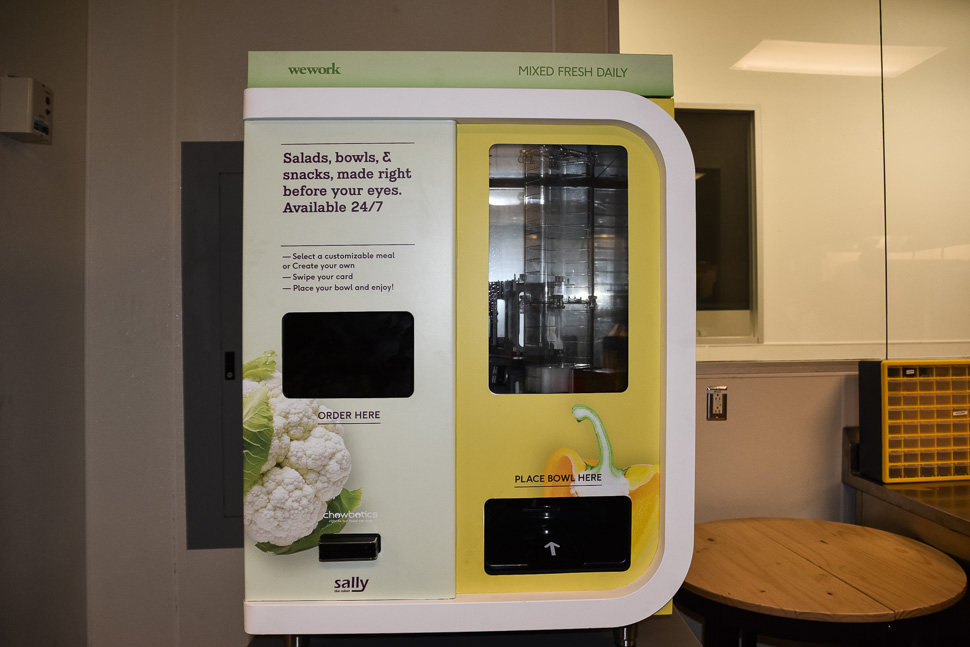
Before Pilotworks shut down, the Dallas location had a Sally. [Photo: Quincy Preston]
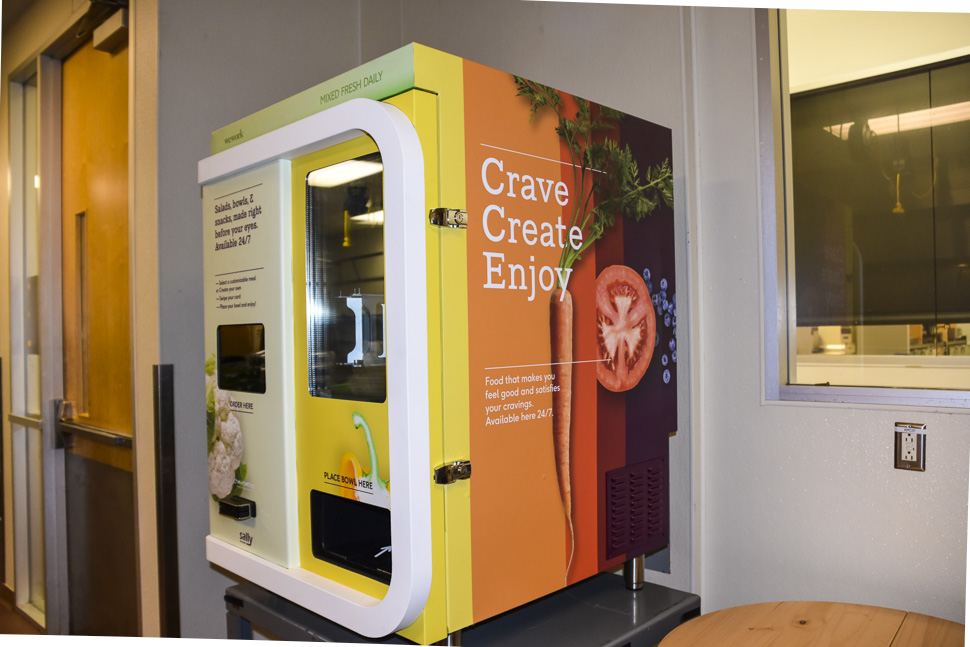
[Photo: Quincy Preston]
“Since PilotWorks closed, we do not currently have a commissary in which to prepare food.” Dr. Sekar says. “Therefore, we decided to put our vending business on hold. We are now focused on working with third parties to restock our robots.”
In retail like restaurants and grocery stores, those employed there restock the robots. In office spaces, the company managing the cafeteria, such as Compass Group or Sodexo, would be responsible for restocking Sally.
And while a long-term solution to PilotWorks’ closure has not yet been determined, the expansion of Sally and other food-making machines is not going to halt. Dr. Sekar has big plans for what’s next in food-making robots, because “the future of fresh is here.”
![]()
Get on the list.
Dallas Innovates, every day.
Sign up to keep your eye on what’s new and next in Dallas-Fort Worth, every day.

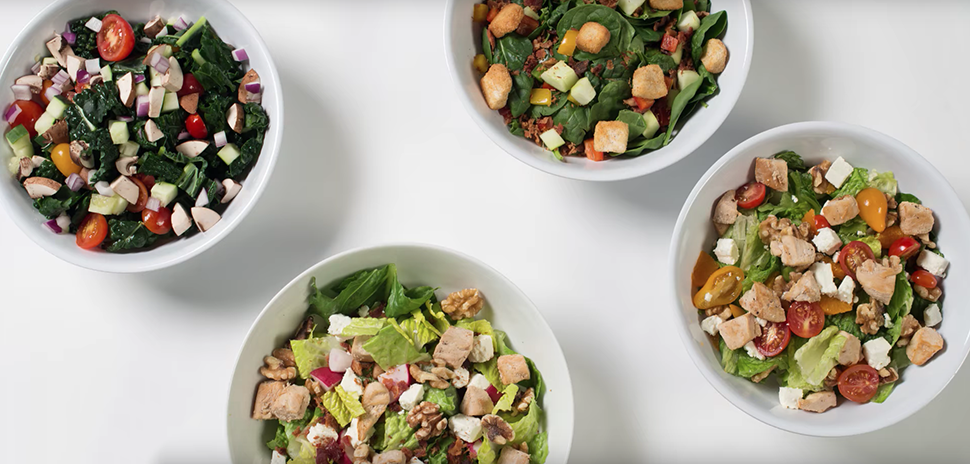


![Pudu offers many commercial service robots. Free 1-week trials of the PuduBot food delivery robot (far right above) are being offered to Dallas restaurants for a limited time. [Image: Pudu Robotics]](https://s24806.pcdn.co/wp-content/uploads/2021/11/Pudu-Robotics-970x464.jpg)























